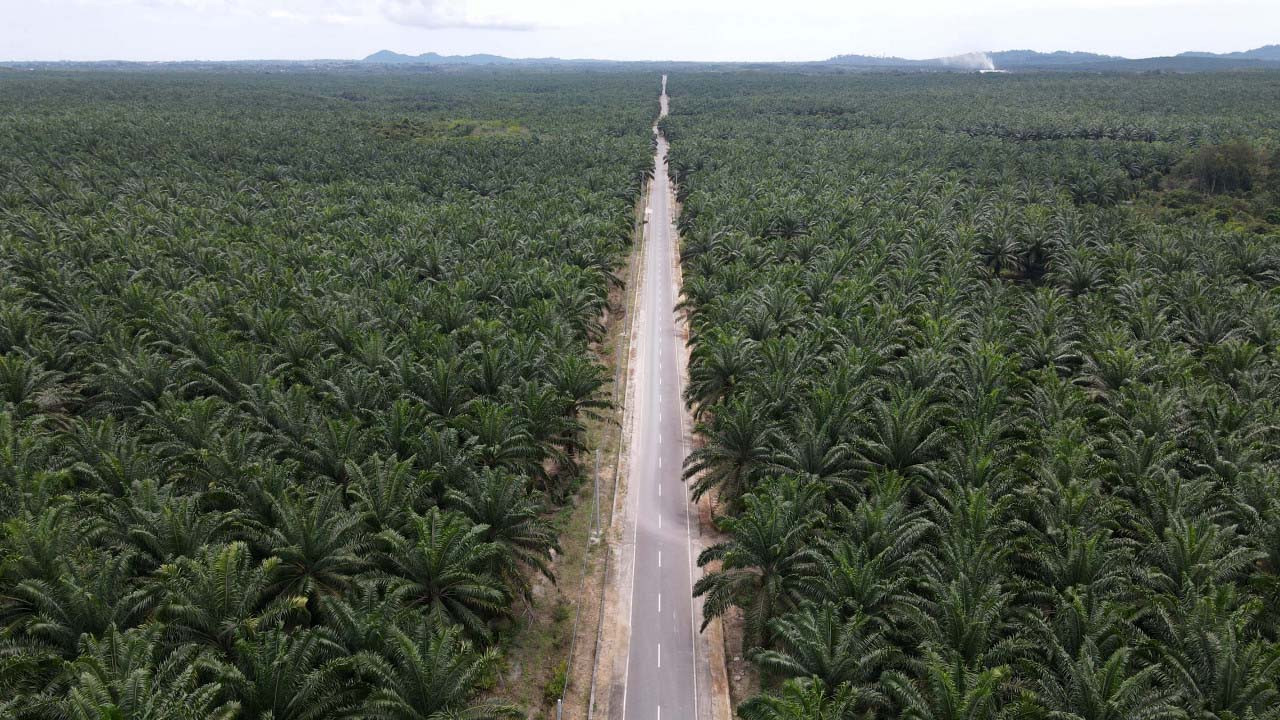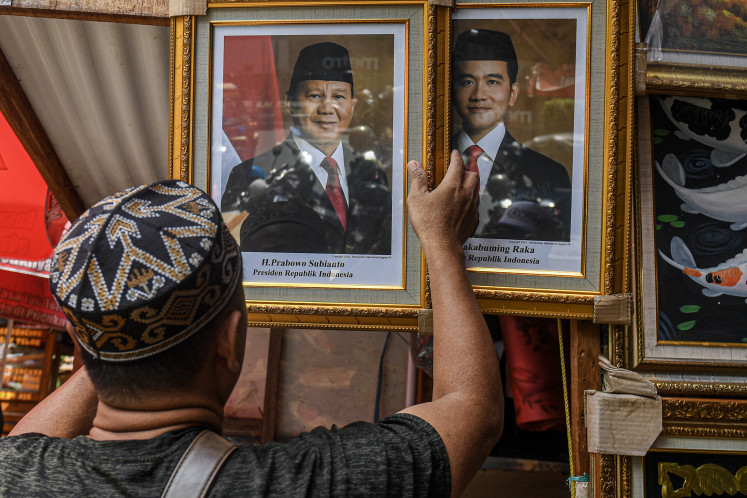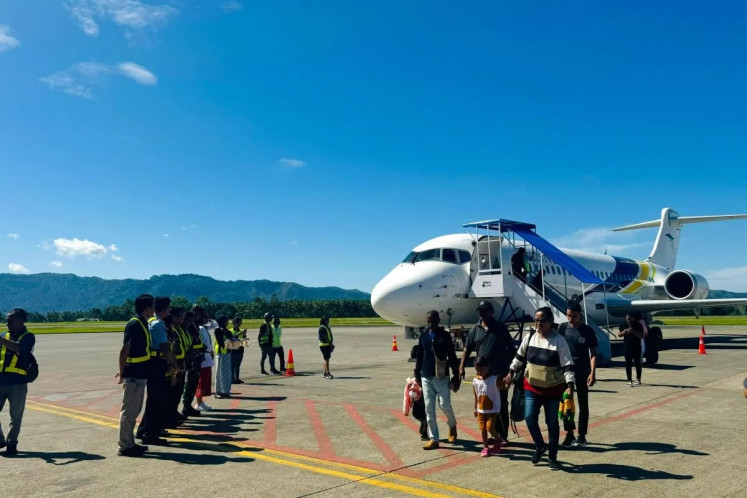Activists warn Jobs Law too weak to protect forests
Fears grow as oil palm ban gives way to ‘contradictory’ law
Change Size

I
ndonesia’s moratorium on new oil palm plantations, which has been a bright spot in a murky defense of the nation’s most valuable commodity, lapsed on Sunday.
And with no sign of a possible extension, environmental activists are worried that the 2020 Job Creation Law and the implementing regulations that are supposed to supplant the ban might run counter to its original spirit, giving amnesty to plantations in forest areas instead.
The moratorium ended exactly three years after President Joko “Jokowi” Widodo issued Presidential Instruction (Inpres) No. 8/2018, in response to widespread concerns about environmental violations, land conflicts and labor-rights abuses within the palm oil industry.
The ban mandated the suspension of new concessions, depriving palm oil players of a way to legally clear more land. The moratorium also required that existing licenses be reviewed no later than three years after issuance.
But the government is now saying that the ban is no longer relevant, especially after the Jobs Law and related provisions were passed.
Lawmakers enacted the so-called omnibus law in October, 2020, overhauling the nation’s business-licensing regimes and with them the management of oil palm concessions. Immediately after the Jobs Law was put into effect, officials started drafting and issuing dozens of implementing regulations. Chief among them was Government Regulation (PP) No. 24/2021, which details administrative sanctions in the forestry sector such as fines for oil palm plantations encroaching on forest areas.
However, many remain unconvinced that the provisions are sufficient to replace the moratorium, especially in terms of the periodical review of existing licenses.
Adrianus Eryan, a researcher for the Indonesian Center for Environmental Law (ICEL), insists that the concession ban and the Jobs Law contradict one another.
The former, he noted, prevents new plantation licenses from being issued, while the latter allows for the granting of licenses, even for plantations inside forest areas.
“As a consequence, our total forest cover area would decrease and this would further hamper our emissions-reduction efforts,” he told The Jakarta Post on Tuesday.
Deterring crime
The provisions under the Jobs Law and PP 24/2021 are set up in such a way that most concession holders will be able to continue operating their plantations as long as they pay a fine, even if they are found to have encroached on designated forest areas.
Adrianus said this indicated just how much the state still focused on meting out administrative sanctions.
“Without a criminal approach, how will there be a deterrent effect if anyone that expands their operations into forest areas can be forgiven?” he said.
Indonesia is the biggest producer of palm oil, the world’s most consumed vegetable oil, which has found its way into many household products, from soap to margarine.
It is also the country’s most lucrative commodity, leading to its production coming at the expense of rainforests and indigenous land, cleared to make way for plantations.
Environmentalists and policymakers have noted how palm oil players have been quick to skirt protections or good governance practices in favor of more profit. The pro-business Jobs Law does little to ease such concerns.
The Sustainable Madani Foundation has found that 8.4 million hectares of palm oil plantations were not licensed, and that 10.7 million ha of plantation permits had no cover, as of 2020.
Forest Watch Indonesia’s executive director Mufti Fathul Barri on Tuesday suggested that instead of requiring license holders to pay fines, any ambiguity or overlap in land use should be cleared up by improving governance.
“The Jobs Law and PP 24/2021 try to legalize what once was illegal, making our palm oil governance worse, when it was already bad to begin with,” he told the Post.
Meanwhile, Palm Oil Farmers Union (SPKS) chairman Mansuestus Darto took issue with the discretion given to smallholder concession owners, particularly to owners of plantations of under 5 ha.
“Who can truly assess that the 5 ha belong to one person? Their identity, whether they are transmigrants or if they have any link to [big palm oil] corporations; this must be thoroughly identified,” Darto told the Post this week.
Governance
The Coordinating Economic Ministry’s undersecretary for spatial planning and strategic economic zones, Dodi Slamet Riyadi, said on Tuesday that the Jobs Law and PP 24/2021 “have automatically replaced the mandate of the oil palm moratorium that has expired”. He was confident that they would be able to replace the previous ban.
Dodi also noted that the Environment and Forestry Ministry would refrain from issuing any forest conversion permits (IPKH) as it reviewed the 3.4 million ha of palm oil plantations situated within forest areas, which the One Map secretariat flagged earlier this year.
Dodi added that the Agriculture Ministry would be tasked with training and palm oil governance, while at the same time overseeing programs to increase productivity.









